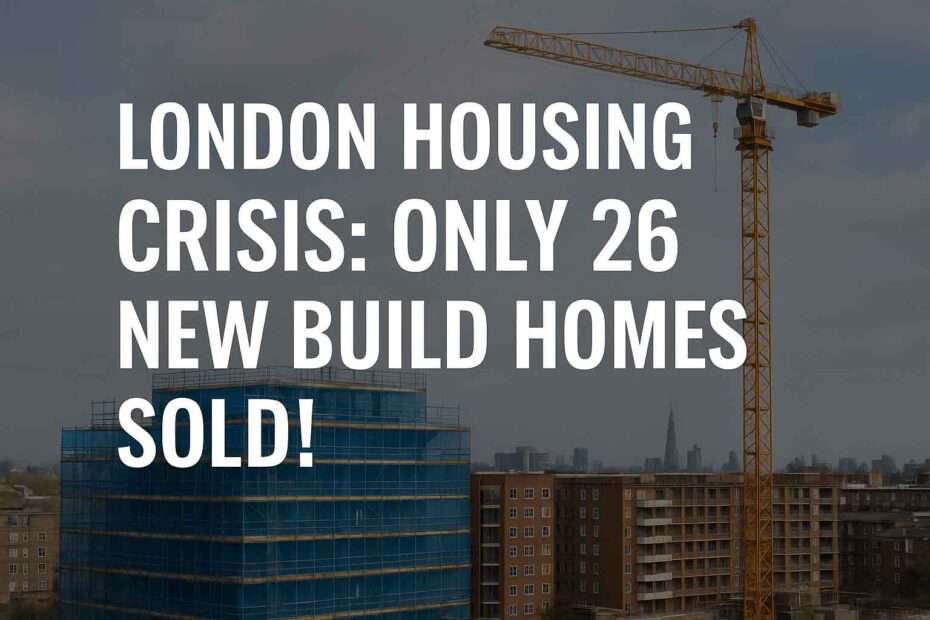London’s New Build Market in Crisis
Just 26 Homes Sold in June
The latest figures from the Land Registry reveal a stark reality for London’s property market. Only 26 new build homes were sold in June, marking a minimal rise from the shocking 19 sales recorded in May. Despite being one of the world’s largest and most dynamic capitals, London’s new build sector appears to have almost ground to a halt.
Earlier this year, thousands of new build homes were being sold each month, but since spring the market has dramatically slowed. Most of the nearly 4,000 new build transactions recorded so far in 2024 occurred in the first three months of the year. Since then, sales have effectively fallen off a cliff — a situation with serious implications not just for developers, but for the wider economy.
The slowdown also spells trouble for the government, which relies heavily on stamp duty as a source of revenue. With property sales collapsing, tax income from the housing sector is expected to fall sharply. This could put more pressure on other forms of taxation, such as income tax and national insurance, especially as the next budget approaches.
So, what’s causing this unprecedented slump in new build sales?
1. The Rise of Build-to-Rent
A growing number of developers are choosing to build properties specifically for the rental market rather than for sale. Major institutions such as Lloyds and BlackRock are expanding rapidly in this area. Lloyds alone already holds around 7,500 build-to-rent properties and aims to increase that number tenfold by 2030. This shift means fewer homes are being released for private sale.
2. Tighter Lending Conditions
Mortgage lenders have become increasingly cautious, particularly with new build developments. Ongoing issues such as cladding safety, proposed leasehold reforms, and uncertainty over property tenure have made lenders more selective. This added scrutiny makes it harder for buyers to secure mortgages on new build homes, especially in London.
3. Service Charges and Leasehold Reform
High service charges are deterring many would-be buyers. Combined with confusion surrounding upcoming leasehold and commonhold reforms, potential purchasers are choosing to wait for clarity before committing. The forthcoming Leasehold and Commonhold Bill, expected before Christmas, may reshape property ownership structures, leading many to hold off until the new rules are confirmed.
4. Planning Delays and Economic Uncertainty
Despite government claims that planning rules are being streamlined, large-scale developments are still taking years to progress. With high interest rates, elevated building material costs, and uncertainty in the wider economy, many developers are reluctant to take on major projects.
5. Rising Build Costs
Construction costs have soared by around 17% since 2022. The pandemic caused severe shortages of materials, and prices have yet to return to pre-crisis levels. These high costs have further dampened developer appetite and slowed project completions.
6. Decline in Overseas Investment
International investors, once a driving force in London’s new build market, are now looking elsewhere. Uncertainty over regulation and the UK’s economic outlook has pushed investment towards more stable markets such as Dubai.
7. Affordability Pressures
Although wages are slowly rising and mortgage rates are beginning to ease, affordability remains a major barrier. With property prices still high relative to incomes, many buyers simply cannot afford to purchase, stalling the market further.
In summary, the London new build housing market is facing a perfect storm of challenges: restricted lending, escalating costs, wavering investor confidence, and a complex regulatory landscape. The small rise from 19 to 26 sales between May and June offers little comfort.
The figures highlight a broader crisis that affects developers, lenders, and buyers alike — and one that may take significant government intervention and economic stability to resolve.

